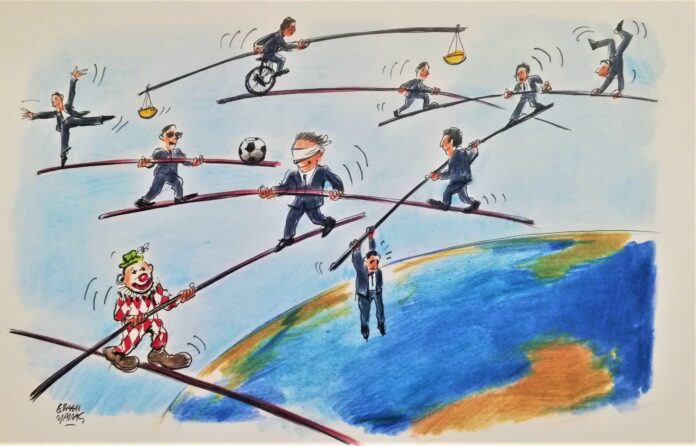Author: John Ikenberry
Affiliation: Princeton University, Department of Politics
Organization/Publisher: International Affairs
Date/Place: January 1, 2018, U.K.
Type of Literature: Journal Article
Number of Pages: 17
Link: https://academic.oup.com/ia/article/94/1/7/4762691
Keywords: Liberal International Order, Liberal Internationalism, Liberal Modernity, Crisis of Transition, Anarchy.
Brief:
As one of the underlying aims that have propelled liberal internationalism through the ‘golden eras’ and contemporary pioneers of Neoliberalism in international relations, Ikenberry offers here an “optimistic answer” to the most frequently asked question of late: “Are we living today in the era of the end of the liberal international order?” Today, for the first time since the 1980s, the liberal international order is in a serious crisis. However, the scholar argues that liberal internationalism still has a future, despite all of its problems. It is true that the U.S. hegemonic institutions of the liberal order are in a state of weakness, but most of the general ideas and motivations organizing liberal internationalism are deeply involved in world politics. Moreover, he argues that the liberal internationalism is not simply a creature of American hegemony. It is a more general and longstanding set of ideas, principles and political agendas for organizing and reforming international order. In order to prove this perspective, the author returns to history to follow the twisted path of international liberalism since the end of the eighteenth century. After having clarified the set of principles on which international liberalism is based, in addition to the sources of contemporary liberalism, he argues that creating an international ‘space’ for liberal democracy, reconciling the dilemmas of sovereignty and interdependence, seeking protections and preserving rights within and between states, are ‘global catastrophes’ of the last two centuries. Today, the author believes that what we are witnessing is a ‘crisis of transition’, whereby the old US-led political foundation of the liberal order will give way to a new configuration of global power, new coalitions of states, and new governance institutions. This transition might be leading to some sort of “post-American and post-western order” that remains relatively open and rules-based. Therefore, the current crisis of the international liberal order is “a crisis of success”, emerged from its post-Cold War triumph and expansion, it is a crisis resulting from growing turmoil and instability resulting from the rapid mobilization and spread of global capitalism, market society and complex interdependence, not a crisis caused by the return of superpower politics, geopolitical conflicts and the problem of international Anarchy. Finally, in order to still exist and remain dominant, the liberal international project will need to rethink its vision.
By: Djallel Khechib, CIGA Senior Research Associate




